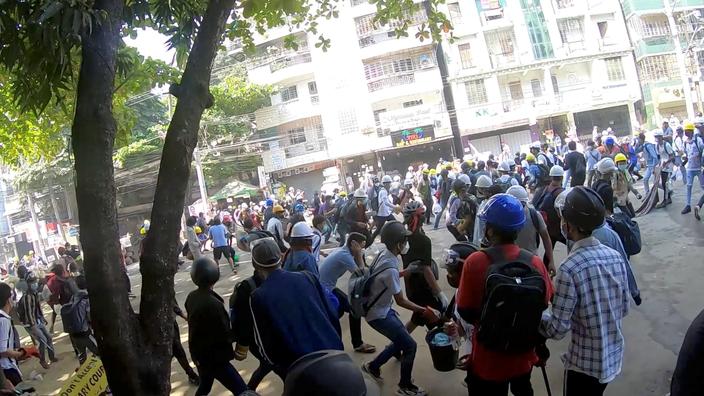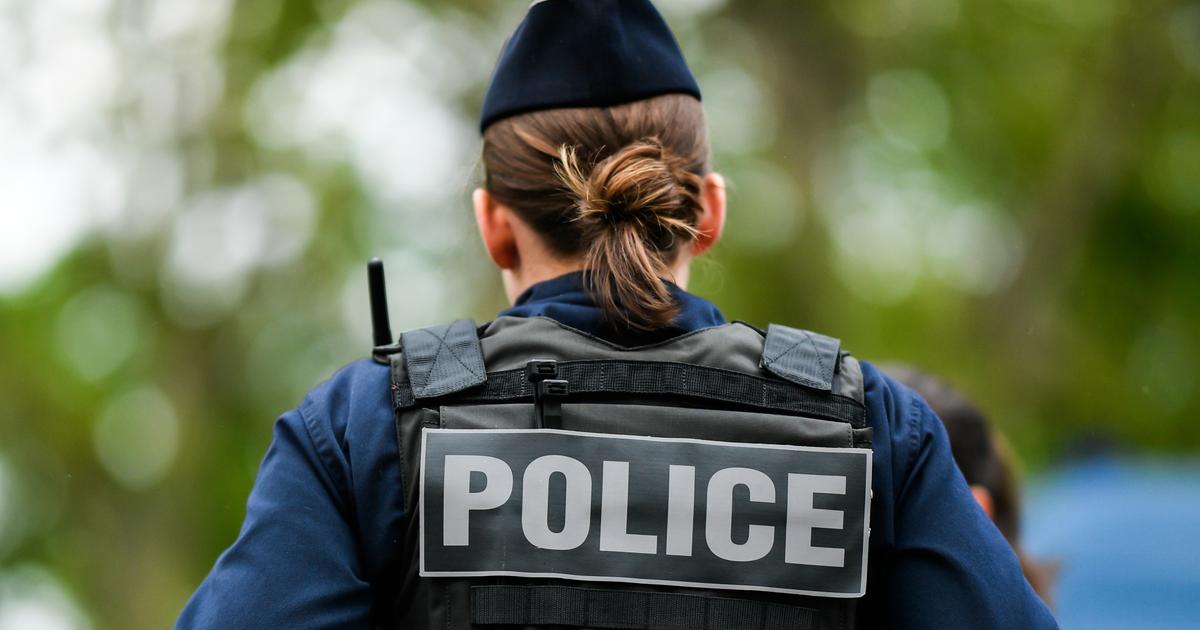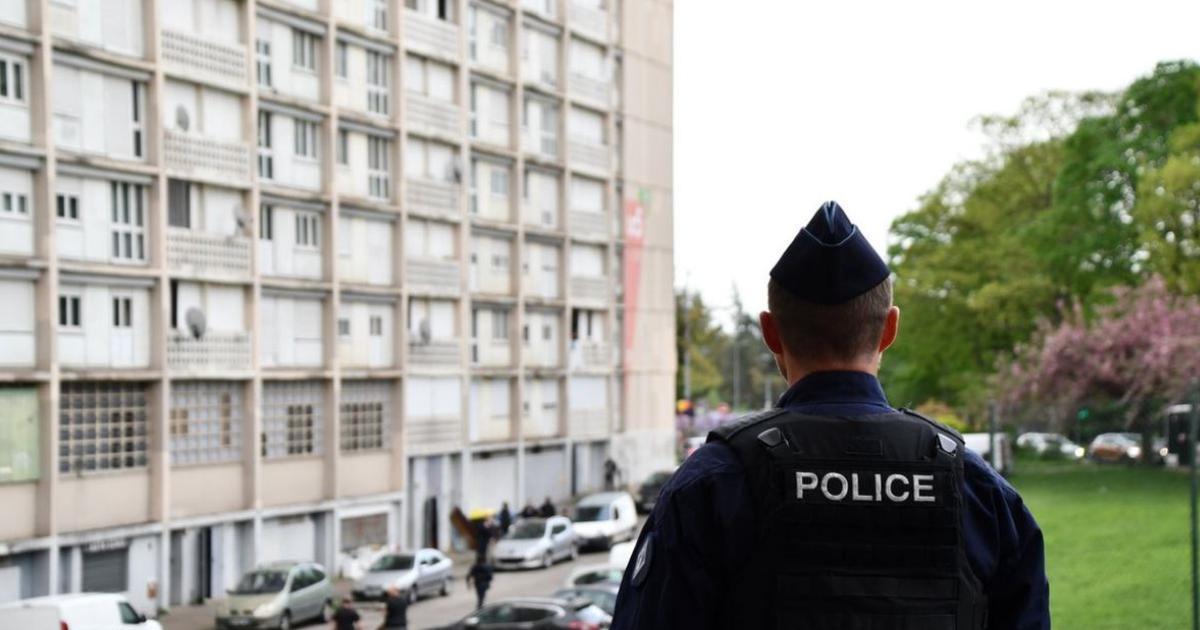Security forces are deploying again Tuesday, March 9 in Yangon after surrounding hundreds of pro-democracy protesters in the city center last night, increasing raids on homes and arrests.
Axes of the economic capital are blocked by the military and traders hurry to sell their goods before possible new violence.
Read also: Burma: the incredible story of Sister Ann, the nun who prays on her knees in front of the police
During the night from Monday to Tuesday, hundreds of protesters, including many Burmese who came to celebrate International Women's Day, were cornered for hours in the Sanchaung district, the scene of multiple anti-junta rallies in recent days.
Security forces searched houses for demonstrators and detonations were regularly heard.
Anyone caught hiding protesters will be punished, state media have warned.
“The police inspected all the houses on the street. They came to our apartment, but we hadn't hid anyone ”
and they left, said a resident.
“They told us not to look at them, otherwise they would shoot,”
said another.
Several dozen people have been arrested, according to testimonies collected by AFP.
To support the besieged protesters, hundreds of residents defied the curfew imposed by the authorities by taking to the streets.
"Free the students,"
they chanted, as security forces fired, including stun grenades, in an attempt to disperse them.
The protesters were able to leave the neighborhood in the early hours of the day.
60 civilians killed since the putsch
“The government's patience is exhausted,”
state media warned after five weeks of daily pro-democracy protests.
The junta is continuing its repression more than ever in an attempt to put an end to the peaceful insurgency against the coup that overthrew Aung San Suu Kyi on February 1.
Three protesters were killed on Monday and several injured.
The army plunges the country more every day "in a climate of fear", deplores the Association of Assistance to Political Prisoners (AAPP) which lists at least 60 civilians killed since the putsch and more than 1,800 arrested.
Read also: Bloody escalation in Burma
In Myitkyina (north), images disseminated on social networks showed protesters inanimate and covered in blood, one of them lying face down on the ground, part of his skull torn off.
A Catholic nun in a white dress knelt in the street, begging the police not to shoot.
In Mandalay (center), two military vehicles struck protesters, six were injured, two seriously.
The events of Sanchaung led to a new set of international protests.
The Secretary General of the United Nations, Antonio Guterres, urged
"maximum restraint"
and
"the release"
of the demonstrators
"without violence or arrests"
.
The European Union's representation in Burma, the embassies of the United States and the United Kingdom, the former colonial power, have issued similar messages.
Paralyze the economy
NGOs, media, politicians: raids have increased in recent days.
A police operation took place on Monday against the Myanmar Now news agency.
“We are the first newsroom attacked by the regime.
We work in fear (...) the junta will have no tolerance for reporting on its crimes, ”
noted its editor Swe Win.
The license to publish this media was then revoked by order of the Ministry of Information, which did the same for other independent media outlets (Mizzima, DVB, Khit Thit and 7 Day).
The National League for Democracy, Aung San Suu Kyi's party, is also particularly targeted with many officials arrested in recent days and a local representative killed.
The military confirmed having taken control of public hospitals and university campuses
"at the request of citizens who do not want to see instability in their country"
.
Doctors, teachers, lawyers and other officials have gone on strike since the coup.
The unions called for stepping up the movement from March 8 to cripple the economy and put pressure on the junta.
These calls for civil disobedience have a significant impact on many sectors of Myanmar's fragile economy with empty ministerial offices, closed schools and hospitals, and unable to function banks.
The junta, for its part, warned officials: those who did not return to work from March 8 will be sacked.
Read also: Burma: the dangerous showdown between the junta and the street
The generals turn a deaf ear to the concert of protests from the international community, divided on the response to be provided. The UK, US and some other western countries have imposed targeted sanctions. But China and Russia, traditional allies of the Burmese army, do not formally condemn the coup. Suddenly, the UN Security Council failed to agree on a joint declaration. Negotiations are to continue this week.












/cloudfront-eu-central-1.images.arcpublishing.com/prisa/KMEYMJKESBAZBE4MRBAM4TGHIQ.jpg)


